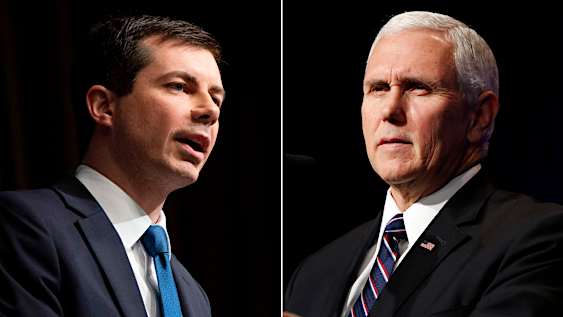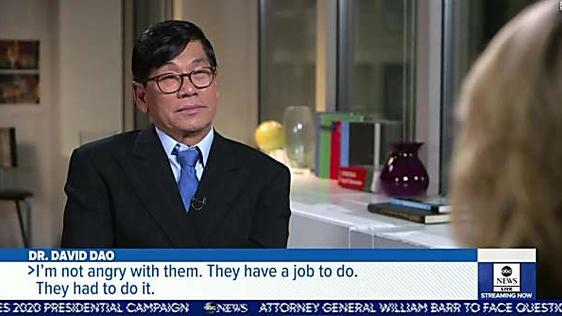This is a good news for CNN news
- Get link
- X
- Other Apps
Real life Game of Thrones
By Richard Galant, CNN
Updated at 1336 GMT (2136 HKT) April 14, 2019

Video shows arrest of Assange01:17
Editor's Note:Sign up to get our new weekly column as a newsletter. We're looking back at the strongest, smartest opinion takes of the week from CNN and other outlets.
(CNN) — The week began with a purge in Washington. It ends with the start of the last season of "Game of Thrones," a television series whose violent power plays have gripped viewers' attention for eight years.
But in between, there was plenty of epic drama, from the release of the first picture of a black hole to the caught-on-video arrest of white-bearded Wikileaks founder Julian Assange, whose refuge in the Ecuadorian Embassy in London lasted almost as long as "GoT" on HBO (a subsidiary of WarnerMedia, which also owns CNN).
As he was dragged out of the embassy, Assange looked like a "befuddled Old Testament prophet," wroteAlan Rusbridger, former editor of The Guardian, tracing Assange's journey from obscure hacker to one of the most "reviled, celebrated and lionized" people in the world. The central question, Rusbridger noted, is whether Assange's role in unearthing and publishing secrets makes him a journalist whose actions should be protected by law. He argued that Assange is at least partly a journalist, though also many other things, and wrote, "His case is not a simple one. But disliking Assange shouldn't be the same as disowning him."
It's about time Assange faces justice, wrote Frida Ghitis, arguing that the law shouldn't shield him from prosecution, since he is more of an activist than a journalist. "Assange worked diligently to advance Putin's goals. The Russian President wanted Hillary Clinton to lose, and Assange went out of his way to help. ... Assange also made extra efforts to smear the Clinton campaign, advancing conspiracy theories he knew were false."
Tax Day
Monday's tax deadline comes amid a battle over access to President Donald Trump's tax returns. "House Democrats may have found a silver bullet to get their hands on them," wrote legal analyst Elie Honig, referring to "an obscure provision of the IRS code." But Trump administration officials are balking -- one said, "this is a hill and people would be willing to die on it."
There's another twist: Self-proclaimed democratic socialist Bernie Sanders, one of the front-runners in the 2020 race, has promised to release the past 10 years of his tax returns by Monday, but let slip that he is a millionaire. "If you write a best-selling book, you can be a millionaire, too," Sanders told The New York Times.
Some found Sanders' statement incongruous, butSarah Jones wasn't troubled by it: "If Sanders is a hypocrite, it's for delaying the release of his tax returns. The size of his bank account has nothing to do with it," she wrote in New York magazine.
For many of the 150 million-plus American taxpayers, the new tax law has slightly simplified the tax filing process. Still, it's plain that there are really two tax systems, wrote tax expert Edward McCaffery -- one for the people whose paychecks are whittled down to fund the government and the other for the super-rich, like Trump, who can in some cases get away with paying zero tax.
"We have, quite simply, nowhere to hide. ... The IRS already knows everything it needs to know about us. Taxes are withheld from our paychecks before we ever even get cash to pay for food or shelter or other necessities."
It's all about Stephen Miller
The simmering controversy over immigration and America's southern border boiled over twice, both times involving White House senior adviser Stephen Miller. He was reported, in a story broken by The Washington Post, to be behind an aborted plan to send immigrants stopped at the southern border to sanctuary cities, including Nancy Pelosi's San Francisco, to punish Democrats for opposing Trump's border wall. (Trump himself confirmed the report via Twitter on Friday.)
Bill Carter was floored, not only by the report, but also by the fact that it didn't dominate coverage: "A story that merited almost cartoon-character double-takes of astonishment ... grabbed, at least for the beginnings of one news cycle, a portion of media attention, before likely getting thrown into the wash of what has become the daily recitation of the gobsmacking news out of the nation's capital." Though the White House plan is being called out as cruel and depraved, Carter noted, the controversy won't get the sustained attention it deserves: "Astonishment will ebb. Media heads will snap back."
Exit Kirstjen Nielsen
The first border story of the week was the ouster of Homeland Security Secretary Kirstjen Nielsen, part of what was cast as a "near-systematic" purge of the agency carried out at the urging of Miller.
Peter Bergen thought Nielsen was particularly miscast for the high-pressure role, where she lacked the stature of her predecessors while arguably faced with what he called the "toughest job in the government."
Elliot Williams, a former assistant director at Immigrations and Customs Enforcement, argued that part of the underlying problem is that "by housing most of the agencies that deal with immigration in DHS, the US government wrongly suggests that immigration is exclusively a function of securing the homeland, of keeping the public safe."
Summing up a range of Trump actions, Joe Lockhart suggested that the President is sabotaging his own government, with this prime focus: "There is nothing that has reduced trust in government among many Americans than the President's erratic and outrageous policies around immigration."
'Behold infinity'
After decades of scientific research, we finally got to see one of the most extraordinary things in the universe: a black hole, and your tax dollars helped make it possible. It was enormous, wrote physicist Don Lincoln: "Its mass is about 7 billion times the mass of our sun." And enormously far away. The only way to capture it was to essentially turn the earth into a giant radio telescope, stitching together a "worldwide network of radio receivers."
"We should all take a bit of pride in our individual role in making possible this breathtaking scientific observation," wrote Lincoln, a senior scientist at the Fermi National Accelerator Laboratory. (For more on black holes, read his account of how they provided the "perfect environment" for testing Albert Einstein's theory of relativity.)
"Forget everything else for a moment, and behold infinity," wrote Eugene Robinson, in the Washington Post.
Poacher
Serengeti National Park. Lion yawning, Panthera leo, Tanzania. (Photo by: BSIP/UIG via Getty Images)
The internet was seized with interest in the story of a suspected rhino poacher who was trampled by elephants and then eaten by lions. But, as conservation expert Craig Packer wrote, the story was likely less about the revenge of the jungle and more about the human ordeal that drives people in poverty to the extreme: "From the point of view of a poor family in Mozambique, a single rhino horn is the equivalent of a year's salary. The risks of getting caught by rangers, trampled by elephants or eaten by lions may seem insubstantial compared to the opportunity to feed your entire family for a whole year."
George is trending
George Washington was trending, and it wasn't even his birthday. Politico reported on Trump's visit to Mount Vernon last April with French President Emmanuel Macron. Referring to Washington's Virginia home, Trump reportedly said, "If he was smart, he would've put his name on it ... or no one remembers you."
John Avlon pointed out that Washington is remembered and commemorated in all sorts of obvious ways, but the really troubling thing about our 45th President is that he cares so little about the biographies of his predecessors. "This prideful ignorance, the belief that he's got nothing to learn from the past, that facts are merely obstacles to a good sales pitch, compounds the steep learning curve he faced entering the White House," Avlon observed.
A brutal leader is toppled
"For most people in Sudan, Omar al-Bashir is the only leader they have ever known, his 30-year rule defined by brutal oppression and astounding political survival," wrote CNN's Nima Elbagir. The nation's military deposed Bashir this week and said it would prosecute him, while also promising to head on a path to democracy.
Elbagir was 11 when he came to power, and everything changed: "Sudan went from a very normal country to one where every aspect of our lives -- from our clothes, to the company we kept -- was suddenly scrutinized with terrifying consequences."
'Endless wait is almost over'
Ever since Attorney General William Barr's four-page summary of the Mueller report was released last month, Democrats have been demanding the release of the special counsel's full investigation -- more than 300 pages' worth. Barr fielded questions about it on Capitol Hill on Tuesday, promising a redacted version would be released within a week. The endless wait is almost over, wrote Caroline Polisi.
Nothing Barr said reassured his critics. "From Day One on the job as attorney general of the United States, William Barr has been prejudiced against the possibility that President Donald Trump committed crimes," Elie Honig wrote. And that was before Barr publicly bought into the narrative of Trump and his supporters that FBI investigators spied on Trump's 2016 campaign. Pelosi told reporters Wednesday that Barr had gone "off the rails."
But Byron York, in the Washington Examiner, said Democrats were off base: "Barr's statement was accurate and supported by publicly known facts."
Maxine Waters strikes back
On the same day that Barr was frustrating Capitol Hill Democrats, another Trump cabinet officer was having his own encounter with the other side in Congress. Treasury Secretary Steve Mnuchin had a blustery exchange with Financial Services Committee Chair Maxine Waters over when his testimony would end.
"Instead of appealing to her in a reasonable, mature, respectful way, however," wrote Peggy Drexler, "he chose the sarcastic, arrogant, belittling route of a bully -- and a mansplainer -- offering her detailed instructions on how to end the meeting, as if she were a child and did not understand the problem here."
The road to serfdom?
The new popularity of democratic socialism prompted two libertarians to examine its differences from classic forms of socialism, in which private enterprise is restricted or eliminated. Today's socialists don't call for government to take over the means of production, they wrote, but it's still the "scenic route" to taking away freedom, argued Jeffrey Miron and Ryan Bourne. "Today's socialists might not demand eliminating private property ... but, combined, their proposed regulatory, spending and taxing onslaught would severely restrict freedom and undermine prosperity, just like the socialist experiments of old."
Foster superheroes
As of 2017, more than 440,000 children were in America's foster care system, wrote Madeleine Deliee, a writer who is herself a foster parent. Yet there are remarkably few nuanced portrayals of people in the system. "Say 'foster care' to most people and they think of two tropes: the saint or the villain," she wrote. So she was delighted with the new film "Shazam!" in which "the soon-to-be superhero" is a foster child:
"'Shazam!' was the closest version of fostering I've seen to the reality my family experienced. The conflicting loyalties between a child's old life and new life, the desire to connect and separate simultaneously, the confusion of not knowing how this arrangement changes your identity -- it was all there, just as we lived it."
Don't miss these
• Holly Thomas: Don't underestimate Kim Kardashian, Esq.
• Kate Maltby: A new Princess Diana makes her debut as real-life royals' lives are changing
• Guthrie Graves-Fitzsimmons: Buttigieg is a symbol for a rising Christian left
• Samantha Vinograd: Trump's personal security breaches are a problem for all








Comments
Post a Comment